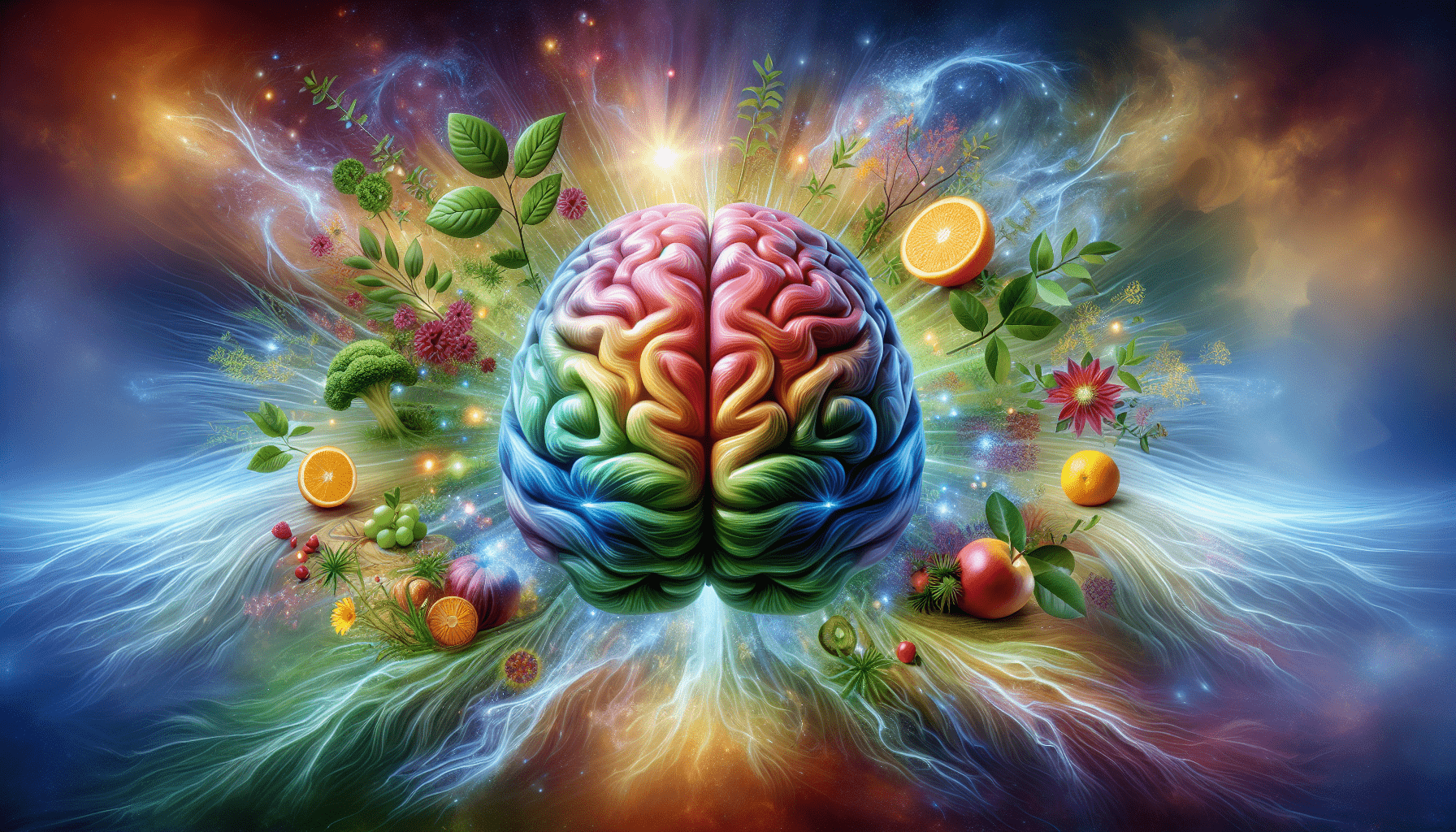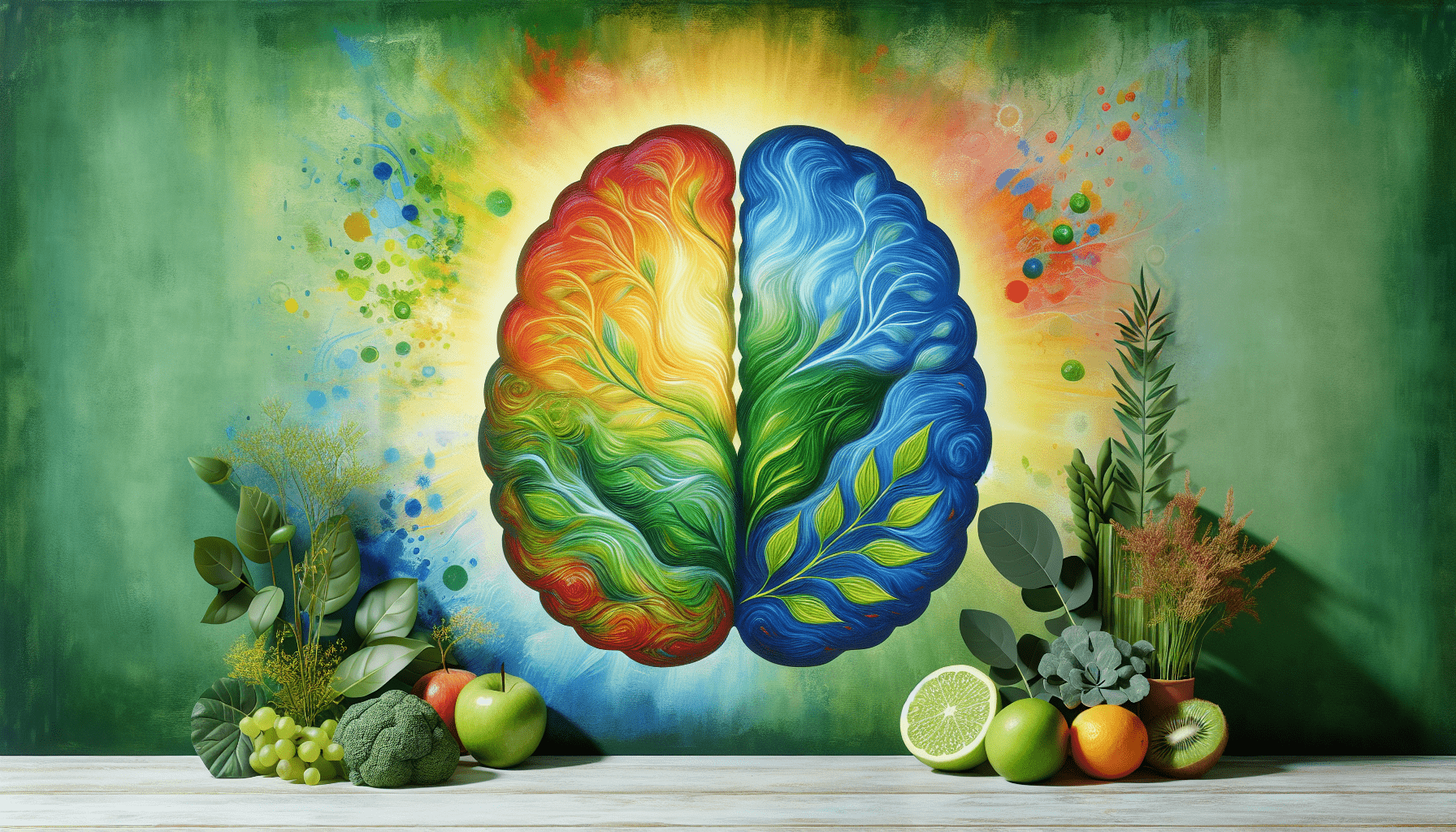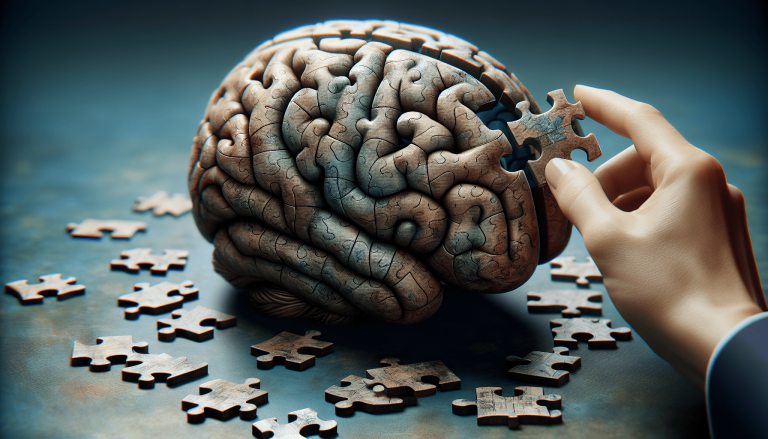Can I Make My Brain Healthy Again?
Can I Make My Brain Healthy Again?” is an engaging guide that walks you through practical and achievable steps to rejuvenate your brain health. You’ll discover how incorporating simple habits like balanced nutrition, regular exercise, and mindful practices can make a significant difference. This article illuminates the science-backed strategies to boost your cognitive functions, improve memory, and enhance overall mental well-being. Get ready to embark on a journey towards a healthier, sharper mind!
Have you ever found yourself wondering, “Can I make my brain healthy again?” If so, you’re not alone. Many people are increasingly aware of the importance of brain health, but not everyone knows what can be done to improve it. The good news is that there’s a lot you can do to rehabilitate and rejuvenate your brain, no matter where you’re starting from. Let’s dive into this journey together, and you’ll discover the secrets to a healthier brain.
Understanding Brain Health
First things first, let’s talk about what brain health entails. Your brain is a complex organ, responsible for virtually everything you do, think, or feel. Just like any other organ, it benefits from proper care and attention.
What is Brain Health?
Brain health refers to the overall well-being of your brain, which includes its ability to function properly, maintain cognitive abilities, and manage emotions.
Why is Brain Health Important?
Your brain controls every aspect of your life, from your physical movements to your thoughts and emotions. A healthy brain is key to a fulfilling and active life.
Causes of Brain Decline
Understanding why brain health might decline is crucial. Several factors can contribute to this decline.
Aging
As you age, natural changes occur in your brain that can affect cognitive functions. This is a normal part of the aging process but can be mitigated by healthy lifestyle choices.
Poor Diet
Your brain requires a variety of nutrients to function optimally. Diets high in sugar and unhealthy fats can impair cognitive function.
Lack of Physical Exercise
Physical exercise improves blood flow to the brain and can stimulate the growth of new neurons. Lack of exercise can therefore contribute to brain decline.
Stress and Mental Health
Chronic stress and poor mental health can deplete your brain’s resources, leading to cognitive and emotional difficulties.
Environmental Toxins
Exposure to toxins like heavy metals, pesticides, and air pollution can harm your brain.

Steps to Make Your Brain Healthy Again
The good news is that there are numerous steps you can take to improve your brain health. Let’s break them down into manageable categories.
Nutrition
Eating a balanced diet is one of the most effective ways to support your brain health.
| Food Group | Benefit | Examples |
|---|---|---|
| Fruits and Vegetables | Rich in antioxidants, which protect the brain from damage | Berries, spinach, kale |
| Proteins | Provides amino acids necessary for neurotransmitter production | Fish, chicken, tofu |
| Healthy Fats | Essential for brain function and structure | Avocado, nuts, olive oil |
| Whole Grains | Supplies glucose, the primary energy source for the brain | Oats, brown rice, quinoa |
Pro Tip: Incorporate foods rich in Omega-3 fatty acids, like salmon and flaxseeds, which are particularly beneficial for brain health.
Physical Exercise
Regular physical activity doesn’t just keep your body fit; it also promotes brain health.
| Type of Exercise | Benefit | How Often |
|---|---|---|
| Aerobic Exercise | Improves blood flow to the brain | 30 minutes, 3-5 times per week |
| Strength Training | Enhances cognitive function and reduces age-related brain decline | 2-3 times per week |
| Mind-Body Exercises | Reduces stress, improves focus | Yoga, Tai Chi; 1-2 times per week |
Fun Fact: Even simple activities like walking in nature can significantly boost your brain function!
Mental Stimulation
Just as your body needs exercise, your brain thrives on mental challenges. Engaging in mentally stimulating activities can help maintain and improve brain health.
| Activity | Benefit |
|---|---|
| Learning a new skill or hobby | Promotes neuroplasticity, the brain’s ability to form new connections |
| Reading and Writing | Improves vocabulary and analytical thinking |
| Playing Puzzle Games | Enhances problem-solving skills and memory |
| Social Interaction | Boosts emotional regulation and cognitive abilities |
Stress Management
Managing stress is crucial for maintaining brain health. Chronic stress can negatively impact your brain, so finding ways to manage it is vital.
| Method | Benefit |
|---|---|
| Meditation and Mindfulness | Reduces stress and improves concentration |
| Deep Breathing Exercises | Lowers cortisol levels, reducing brain damage |
| Time Management Skills | Helps prevent stress caused by chaotic schedules |
| Professional Counseling | Offers strategies and support for managing stress |
Did You Know?: Even a simple five-minute break of deep breathing can make a significant difference in reducing stress levels.
Sleep
Quality sleep is fundamental for a healthy brain. During sleep, your brain undergoes essential processes like memory consolidation and toxin removal.
| Aspect of Sleep | Importance |
|---|---|
| Deep Sleep | Repairs and regenerates brain cells |
| REM Sleep | Processes emotions and consolidates memories |
| Sleep Duration | Adults typically need 7-9 hours per night for optimal brain function |
Quick Tip: Establish a regular sleep schedule and create a relaxing bedtime routine to ensure you get quality sleep.
Brain-Boosting Supplements
Sometimes, your diet alone may not provide all the nutrients your brain needs. In such cases, supplements can help.
| Supplement | Benefit | Sources |
|---|---|---|
| Omega-3 Fatty Acids | Enhances cognitive function | Fish oil, flaxseed oil |
| Vitamin E | Antioxidant that protects brain cells | Nuts, seeds, spinach |
| B Vitamins | Supports energy production and brain function | Meat, eggs, dairy products, leafy greens |
| Ginkgo Biloba | Improves blood flow to the brain | Available in capsule or tablet form |
Word of Caution: Always consult with a healthcare provider before starting any new supplement regimen.
Reducing Exposure to Toxins
Minimizing exposure to environmental toxins can have a positive impact on your brain health.
| Source of Toxins | Preventive Measure |
|---|---|
| Air Pollution | Use air purifiers at home, avoid outdoor activities when air quality is poor |
| Heavy Metals | Avoid products with high levels of mercury, such as certain seafood |
| Pesticides | Opt for organic produce to reduce pesticide ingestion |
| Household Chemicals | Use natural or eco-friendly cleaning products |
Eco-Friendly Tip: Switch to glass or stainless steel water bottles to avoid potential toxins from plastic ones.
When to Seek Professional Help
While many strategies can improve brain health, there are times when professional help is necessary. If you notice significant cognitive decline or persistent mental health issues, consult a healthcare provider.
Signs to Watch For
| Symptom | Possible Indication |
|---|---|
| Memory Loss | Dementia or Alzheimer’s Disease |
| Difficulty Concentrating | Attention Deficit Disorders, Anxiety, Depression |
| Mood Swings | Mental health disorders such as Bipolar Disorder |
| Persistent Fatigue | Sleep disorders, Depression, Chronic Fatigue Syndrome |
Professional Treatments
Doctors and healthcare providers can offer treatments and interventions tailored to your specific needs, including:
- Medication: To treat underlying conditions like depression or anxiety.
- Therapy: Cognitive Behavioral Therapy (CBT) or other forms of counseling.
- Neurological Interventions: For severe cases, specialized treatments may be necessary.
Important Note: Early intervention can vastly improve outcomes, so don’t hesitate to seek help if needed.

Lifestyle Tips for Long-Term Brain Health
In addition to the steps mentioned above, long-term habits and lifestyle choices can help maintain and enhance brain health.
Stay Hydrated
Water plays a crucial role in brain function. Ensure you’re drinking enough water throughout the day to keep your brain hydrated and functioning efficiently.
Tip: Aim for at least 8 glasses of water per day, but more if you’re physically active or live in a hot climate.
Limit Alcohol and Avoid Drugs
Excessive alcohol and drug use can severely damage your brain. Moderation is key.
Guideline: Stick to recommended alcohol guidelines—up to one drink per day for women and up to two drinks per day for men.
Building a Supportive Social Network
Human interaction is crucial for maintaining emotional and cognitive health. Surround yourself with supportive and positive people.
| Interaction | Benefit |
|---|---|
| Family Time | Provides emotional support and reduces stress |
| Friends | Improves mental well-being and cognitive function |
| Community Involvement | Enhances sense of purpose and belonging |
Friendly Challenge: Try reaching out to one old friend this week and rejuvenate that connection!
Continuous Learning
Never stop challenging your brain. Stay curious and continuously seek new knowledge and experiences.
| Activity | How it Helps |
|---|---|
| Online Courses | Builds new skills and knowledge |
| Workshops and Seminars | Offers intellectual stimulation and networking opportunities |
| Travel | Exposes you to new cultures and experiences, enhancing cognitive flexibility |
Conclusion
Improving and maintaining brain health is a multifaceted journey that involves mindful nutrition, regular physical activity, mental stimulation, stress management, quality sleep, and reducing environmental toxin exposure, among other factors. By making conscientious lifestyle choices and possibly incorporating targeted supplements, you can significantly boost your brain health.
Can you make your brain healthy again? Absolutely! With a little effort and determination, you can rejuvenate your brain and enjoy all the benefits of a sharper, more vibrant intellect. Remember, it’s never too late to start making positive changes for a healthier brain. Here’s to your journey towards optimal brain health!
Additional Resources
If you find yourself more confused lately, forget where you left small things like your phone or your glasses…. Words get stuck on the tip of your tongue or you don’t remember why you walked into a room…
>>>Watch this short documentary immediately because it may very well save your memory.
New Harvard research reveals this common household toxin wipes out your memory 3x times faster… Decreasing the blood flow to your brain and “violently attacking” your neurons and synapses on the hippocampus…
This is the part of your brain that forms episodic memories, that makes you able to think and remember, literally…
Scientists from the National Institutes of Health warn that over 200 Americans are exposed to this toxin daily… And it’s the primary reason why every 66 seconds someone in the United States develops Alzheimer’s and 1 in 3 seniors ends up with some form of dementia.
Click below to find out all about it and what you can do to improve your memory:
Harvard: This common household toxin triggers memory loss







